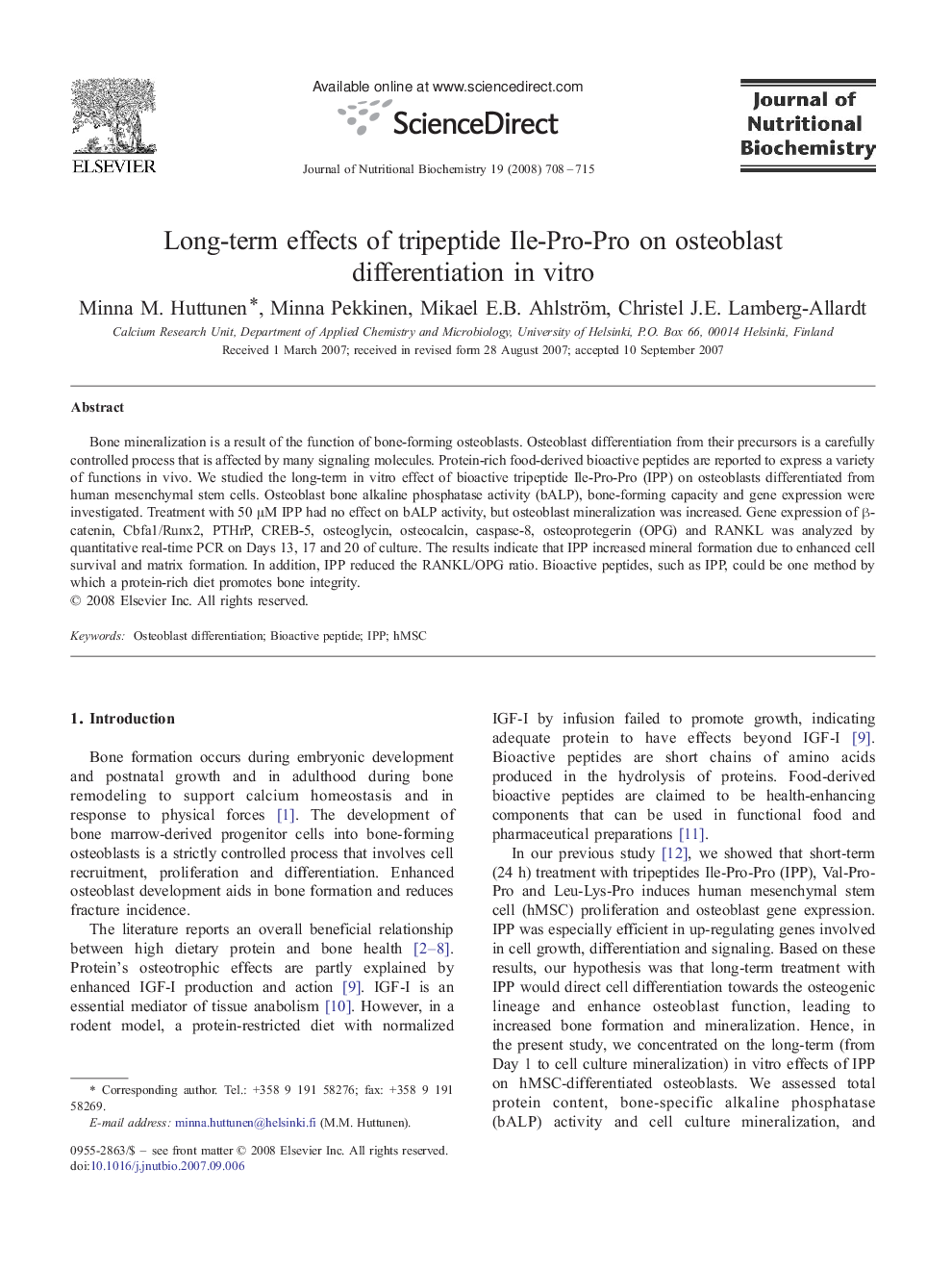| Article ID | Journal | Published Year | Pages | File Type |
|---|---|---|---|---|
| 1990466 | The Journal of Nutritional Biochemistry | 2008 | 8 Pages |
Abstract
Bone mineralization is a result of the function of bone-forming osteoblasts. Osteoblast differentiation from their precursors is a carefully controlled process that is affected by many signaling molecules. Protein-rich food-derived bioactive peptides are reported to express a variety of functions in vivo. We studied the long-term in vitro effect of bioactive tripeptide Ile-Pro-Pro (IPP) on osteoblasts differentiated from human mesenchymal stem cells. Osteoblast bone alkaline phosphatase activity (bALP), bone-forming capacity and gene expression were investigated. Treatment with 50 μM IPP had no effect on bALP activity, but osteoblast mineralization was increased. Gene expression of β-catenin, Cbfa1/Runx2, PTHrP, CREB-5, osteoglycin, osteocalcin, caspase-8, osteoprotegerin (OPG) and RANKL was analyzed by quantitative real-time PCR on Days 13, 17 and 20 of culture. The results indicate that IPP increased mineral formation due to enhanced cell survival and matrix formation. In addition, IPP reduced the RANKL/OPG ratio. Bioactive peptides, such as IPP, could be one method by which a protein-rich diet promotes bone integrity.
Related Topics
Life Sciences
Biochemistry, Genetics and Molecular Biology
Biochemistry
Authors
Minna M. Huttunen, Minna Pekkinen, Mikael E.B. Ahlström, Christel J.E. Lamberg-Allardt,
